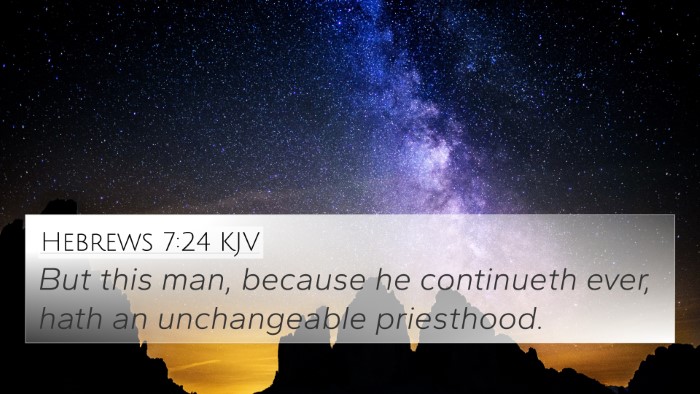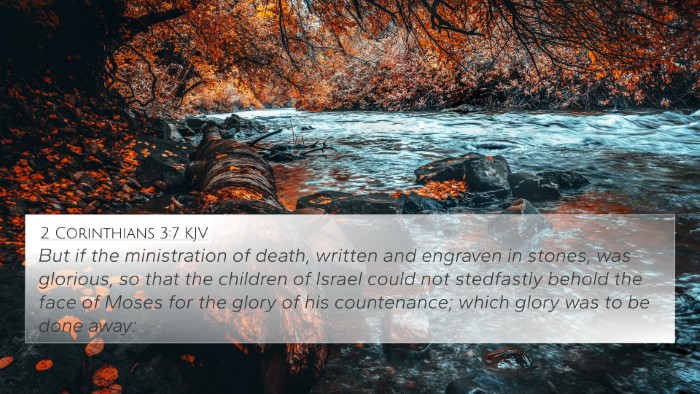Understanding Galatians 2:17
Galatians 2:17 states: "But if, while we seek to be justified by Christ, we ourselves also are found sinners, is therefore Christ the minister of sin? God forbid." This verse speaks to the conflict between striving for justification through Christ and the potential misinterpretation of that justification as an endorsement of sin.
Summary of the Verse Meaning
The Apostle Paul addresses the fundamental theme of justification in Christ and the misunderstanding that can arise from it. This verse illustrates the necessity of clear doctrine in Christianity, especially in understanding the relationship between grace, faith, and sin.
Commentary Insights
- Matthew Henry: Henry emphasizes that seeking justification through faith in Christ does not mean one is free to sin. Instead, true faith ought to produce righteousness and a life that reflects that faith. He warns against the idea that Christ’s grace can excuse immoral behavior.
- Albert Barnes: Barnes provides an analysis of the implications of the statement. He indicates that if Christ facilitates the forgiveness of sins, it does not follow that He would encourage sinful behavior. Barnes focuses on the gravity of misunderstanding the grace of Christ and how it could lead others astray.
- Adam Clarke: Clarke expounds on the Jewish Christian context, pointing out that the believers in Galatia were tempted to misconstrue their new freedom in Christ as a license to sin. He highlights the seriousness of maintaining a commitment to holiness even while relying solely on faith for salvation.
Bible Verse Cross-References
To gain a deeper understanding of Galatians 2:17, we can draw connections with several other scripture passages:
- Romans 6:1-2: This passage raises the question of continuing in sin after receiving grace, affirming that believers are dead to sin.
- Romans 3:8: Paul addresses the slanderous conclusion that one may sin more to show God’s grace greater.
- 1 John 1:8: It states that if we claim to be without sin, we deceive ourselves and do not hold to the truth.
- Romans 5:20: Here, Paul elaborates that where sin increased, grace abounded even more, showing the relationship between righteousness and grace.
- Galatians 5:13: This verse reiterates that although called to freedom, believers should not use that freedom for indulgence in sin.
- 2 Corinthians 5:21: This articulates the doctrine of substitutionary atonement, serving as a basis for justification.
- 1 Peter 2:16: Peter encourages believers to live as free people but not to use freedom as a cover-up for evil.
Thematic Connections
This verse leads us to explore significant themes in Scripture regarding sin, grace, and justification:
- Grace vs. Sin: The tension between God's grace and human sinfulness is a recurring theme, reflecting the struggle for holiness amidst abundant grace.
- Justification: The act of being declared righteous through faith stands as a foundational doctrine of Christianity, with implications for the moral conduct of believers.
- Holiness: A call to live a life that is consistent with faith and the teachings of Scripture, showing how justification must translate into righteous living.
Tools for Bible Cross-Referencing
Engaging in cross-referencing boosts understanding. Effective tools for this include:
- Bible concordances that list words and themes for quick reference.
- Cross-reference Bible study materials that outline connections between verses.
- Resources providing Bible chain references that guide through related scriptures.
Conclusion
Galatians 2:17 serves as a critical reminder of the relationship between faith in Christ, justification, and the call to live a life away from sin. Through a careful analysis of related scriptures and thematic connections, believers can form a comprehensive understanding of their faith and its moral implications.

















